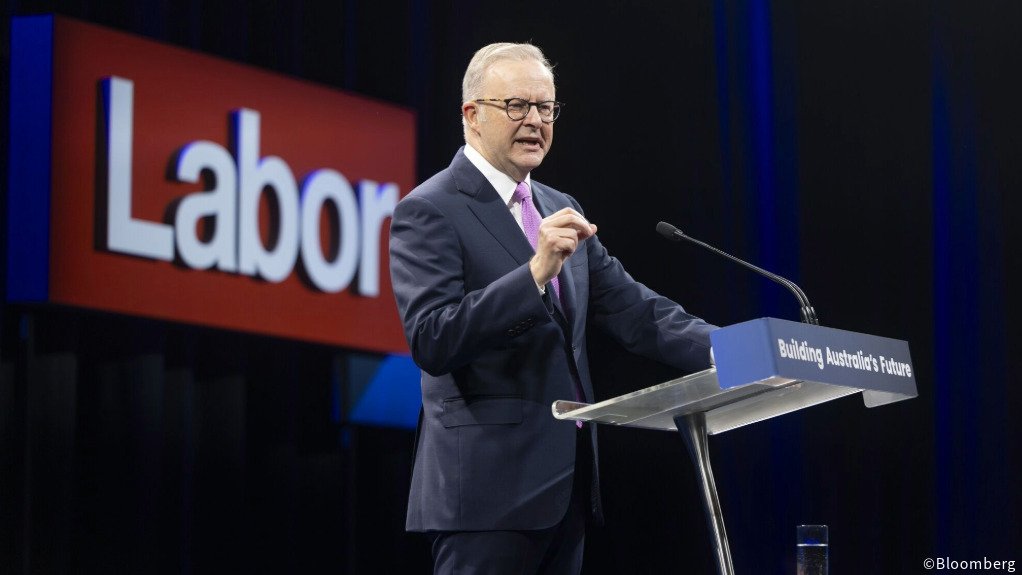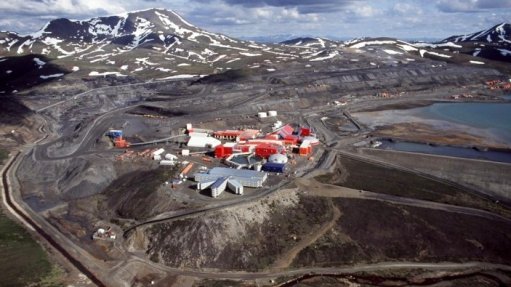Albanese landslide offers rare chance to fix Australia’s economy
Prime Minister Anthony Albanese shocked Australia by securing an historic win in Saturday’s election. Now the question is whether he’ll use that mandate to push through tough measures to overhaul the nation’s economy.
For years, previous administrations have shied away from tackling politically difficult issues such as removing tax incentives for investment property and cutting red tape to improve housing supply. After winning a majority in parliament with the strongest mandate since World War II, Albanese’s center-left government now has the best chance in years to take the hard steps economists have called for to ignite growth.
The need to act is becoming more urgent as key pillars that drove Australia’s expansion in the past few decades start to unravel, including China’s massive demand for minerals. S&P Global Ratings warned last month that Australia’s prized AAA sovereign rating is at risk if election campaign pledges result in larger structural deficits, debt and interest costs.
“The strong result means they are almost certain to get a third term and can have more confidence implementing reform policies that may be less popular initially but will produce longer-term benefits,” said Jonathan Kearns, previously a senior official at the Reserve Bank of Australia and now chief economist at money manager Challenger.
“They know where to start,” he said, citing a number of past reviews of the tax system and productivity performance that are still “lying on the shelf.”
Whether Albanese will take action, however, is unclear. For now, officials are focused on more immediate threats, such as housing costs and economic turmoil triggered by US President Donald Trump’s global trade war.
The Australian dollar held at a five-month high following Labor’s landslide win on Saturday. Money markets are still pricing an interest-rate cut in about two weeks’ time and see at least three more quarter-point reductions after that.
In an interview with Australian Broadcasting Corp. on Sunday, Treasurer Jim Chalmers said the government remains “ambitious” but warned that any major reform agenda will be tempered by the fact that “nobody will control the Senate,” or the upper house of parliament. There, Labor will need the support of the opposition or minor parties to pass legislation.
“We know the global environment is uncertain, and we know that the second term has been given to us by the Australian people because they want stability in uncertain times,” Chalmers said.
Albanese’s government had struggled during its first term with headwinds such as sticky inflation, high interest rates and a housing crunch that’s fueled record prices. Economic output per person declined for seven consecutive quarters through 2023 and much of 2024, a sign of falling living standards.
The government sought to soothe those concerns with additional tax cuts and rebates in a pre-election budget in March, measures that analysts say provided only a short-term sugar hit to the economy.
“Significant economic reforms doesn’t seem to be a part of their agenda,” Diana Mousina, deputy chief economist at AMP. “And the budget position does make them a little bit constrained.”
On taxes, the last major reform, a 10% goods and services tax, was implemented by a center-right government a generation ago in July 2000. Since then, there have been attempts at change, including a mining tax in July 2012 implemented by Labor. However, that was repealed two years later after a massive campaign against it by resource companies followed by a change of government.
Since the mining tax, both sides have shied away from attempting further reform. While more thoughtful members of the ruling Labor party and opposition Liberal-National Coalition acknowledge the current mix isn’t sustainable, there have been no major attempts to tackle it because it’s so easy to mount a political campaign against it.
At the heart of the problem is how Australia raises revenue. It relies much more heavily on individuals’ income tax than other developed world countries. A frequent suggestion, including from groups like the OECD, is that Australia should increase the revenue it generates from indirect taxes like the goods and services tax, and cut income taxes to boost incentives.
Australia is struggling to keep budget pressures under control. The government has a massive welfare program including free health care and disability services, and is providing cost-of-living relief to consumers, like energy bill subsidies and rental support.
“We anticipate Australian yields to rise across the curve but more so at the long end,” said Prashant Newnaha, a senior Asia-Pacific rate strategist at TD Securities. “Labor’s resounding victory reinforces bigger government and larger deficits are here to stay.”
Government spending has surged since the pandemic to record highs, and is forecast to reach about 26-27% of annual gross domestic product over the three years to June 2028. That compares with a long-term benchmark of 22.5%. In contrast, total revenue is forecast at around 25% of GDP in the period, leading to structural deficits.
Article Enquiry
Email Article
Save Article
Feedback
To advertise email advertising@creamermedia.co.za or click here
Press Office
Announcements
What's On
Subscribe to improve your user experience...
Option 1 (equivalent of R125 a month):
Receive a weekly copy of Creamer Media's Engineering News & Mining Weekly magazine
(print copy for those in South Africa and e-magazine for those outside of South Africa)
Receive daily email newsletters
Access to full search results
Access archive of magazine back copies
Access to Projects in Progress
Access to ONE Research Report of your choice in PDF format
Option 2 (equivalent of R375 a month):
All benefits from Option 1
PLUS
Access to Creamer Media's Research Channel Africa for ALL Research Reports, in PDF format, on various industrial and mining sectors
including Electricity; Water; Energy Transition; Hydrogen; Roads, Rail and Ports; Coal; Gold; Platinum; Battery Metals; etc.
Already a subscriber?
Forgotten your password?
Receive weekly copy of Creamer Media's Engineering News & Mining Weekly magazine (print copy for those in South Africa and e-magazine for those outside of South Africa)
➕
Recieve daily email newsletters
➕
Access to full search results
➕
Access archive of magazine back copies
➕
Access to Projects in Progress
➕
Access to ONE Research Report of your choice in PDF format
RESEARCH CHANNEL AFRICA
R4500 (equivalent of R375 a month)
SUBSCRIBEAll benefits from Option 1
➕
Access to Creamer Media's Research Channel Africa for ALL Research Reports on various industrial and mining sectors, in PDF format, including on:
Electricity
➕
Water
➕
Energy Transition
➕
Hydrogen
➕
Roads, Rail and Ports
➕
Coal
➕
Gold
➕
Platinum
➕
Battery Metals
➕
etc.
Receive all benefits from Option 1 or Option 2 delivered to numerous people at your company
➕
Multiple User names and Passwords for simultaneous log-ins
➕
Intranet integration access to all in your organisation




















